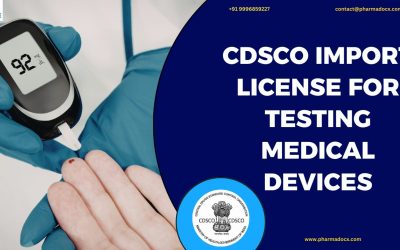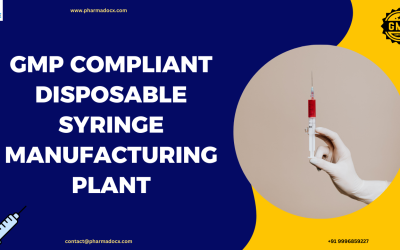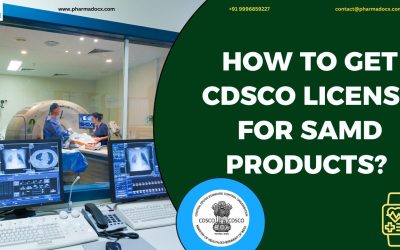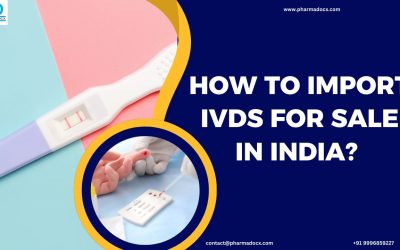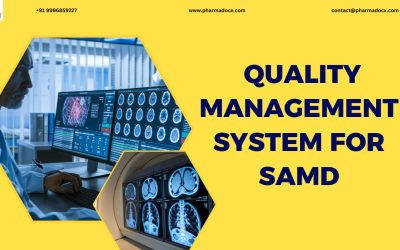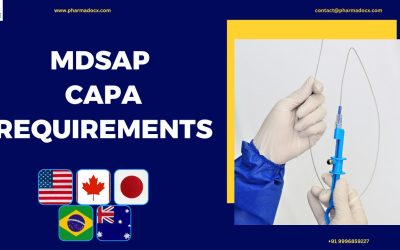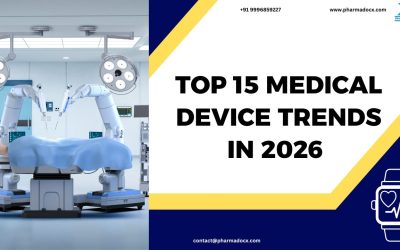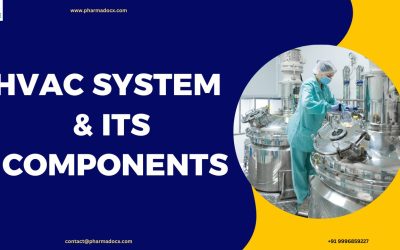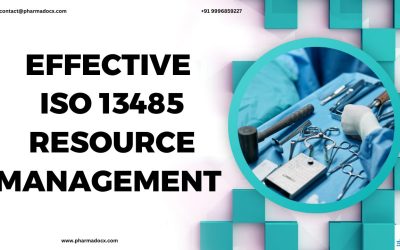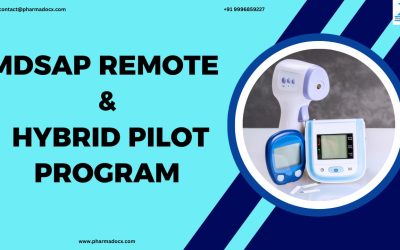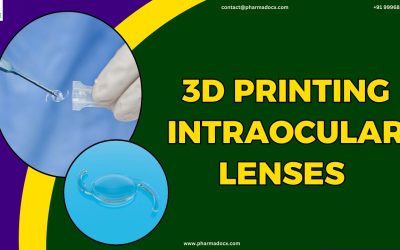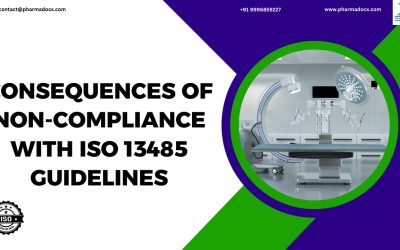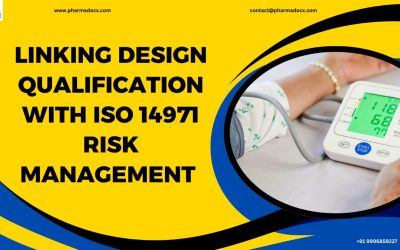Our Blog
10 Tips to Effectively Navigating EU MDR Compliance Challenges
Navigating EU Medical Device Regulation (MDR) and In Vitro Diagnostic Regulation (IVDR) is proving to be one of the most complex regulatory challenges for manufacturers. We have presented some of the common EU MDR compliance challenges. Additionally, we have provided...
Why Hiring a CDSCO Medical Device Consultant is Essential?
Central Drugs Standard Control Organization is the apex medical device regulatory body in India. Securing a CDSCO medical device license is mandatory for launching your devices in India. India’s regulatory landscape for medical devices is complex, highly technical,...
How to Get CDSCO Import License for Testing Medical Devices?
Importing medical devices for testing purposes is a regulated process. Central Drugs Standard Control Organization (CDSCO) is the apex medical device regulatory body and oversees all medical devices being imported into India. Devices imported for testing, evaluation,...
15 Common EU MDR Pitfalls & Tips to Avoid Them
Common EU MDR pitfalls are recurring mistakes and compliance gaps that medical device manufacturers encounter when implementing EU MDR. These compliance gaps frequently lead to delays in obtaining CE marking, and rejection by Notified Bodies. The transition from the...
GMP Compliant Disposable Syringe Manufacturing Plant
A disposable syringe is a single-use medical device typically made of medical-grade plastic. It is pre-sterilized and intended to be discarded immediately after a single use to prevent cross-contamination. A disposable syringe manufacturing plant...
10 Common Medical Device Documentation Gaps to Avoid
Regulators view documentation as the primary evidence of compliance. Even clinically effective devices fail audits if documentation does not demonstrate regulatory compliance. Medical device documentation gaps often result in audit findings, warning letters, delayed...
How to Get CDSCO License for SaMD Products? A Guide
Currently, medical devices are not just limited to physical devices. A software itself can be used as a medical device. Software as a Medical Device (SaMDs) are used not only to diagnose diseases but also to decide the course of treatment. Thus, it is important...
How to Import IVDs for Sale in India? Your Detailed Guide
In vitro diagnostic devices (IVDs) have diverse applications in the healthcare industry. India is still heavily import dependant for fulfilling its IVD needs. Hence, India imports large quantities of IVDs. Thus, Central Drugs Standard Control Organisation (CDSCO) has...
Clinical Validation of SaMD: Vital for Clinical Relevance
Software as a Medical Device (SaMD) is a software intended to be used for medical purposes without being part of a physical medical device. It can perform functions, such as diagnosing, preventing, monitoring, or treating diseases, by analyzing data and providing...
Quality Management System for SaMD: Focus Areas & Principles
Software as a Medical Device (SaMD) refers to a software that is intended to be used for medical purposes. SaMDs are not part of a physical medical device. The software itself is regulated as a medical device, even though it runs independently on computers,...
8 Key MDSAP CAPA Requirements: Your Comprehensive Guide
MDSAP CAPA requirements are a structured, risk-based framework formulated to identify, investigate, and resolve nonconformities while preventing recurrence. Manufacturers must demonstrate robust root cause analysis, effective corrective measures, proactive preventive...
What is New in GSPR? New Changes & How to Comply with Them
EU MDR General Safety and Performance Requirements (GSPR) have recently been updated. The latest changes in EU MDR GSPR have introduced stricter expectations around cybersecurity, clinical evidence, environmental impact, and AI/ML devices. While core compliance areas,...
10 Key Benefits of MDSAP: Everything You Need to Know
The Medical Device Single Audit Program (MDSAP) is a global framework that satisfies the regulatory requirements of multiple countries. MDSAP reduces duplication and ensures consistent quality product oversight. It is now recognized by several major regulators...
MDSAP Post Market Surveillance: Your Detailed Guide
Medical device single audit program (MDSAP) is a comprehensive audit framework designed to meet regulatory requirements of multiple participating countries. MDSAP post‑market surveillance requires manufacturers to maintain a harmonized, risk‑based system for...
How to Easily Get Your Medical Device Approved in Canada?
Navigating Canada’s medical device approval pathway can feel overwhelming. The process of obtaining medical device approval in Canada is complex and requires strict adherence to Health Canada’s regulatory framework. For organizations seeking market entry,...
WHX in Dubai (formerly Arab Health) to bring together key UAE government entities during the groundbreaking 2026 edition
Strong government attendance, including the Ministry of Health and Prevention, Dubai Health Authority, the Department of Health Abu Dhabi, and Sharjah Health Authority, underscoring Dubai’s position as a central hub for healthcare leadership and innovation Record...
EU MDR Compliance for Legacy Medical Devices: New Guidance
Legacy devices are products that were legally certified under older directives (MDD) but are allowed to remain in EU market. The EU MDR has released new guidelines for legacy devices. Legacy devices will have to mandatorily comply with these guidelines to...
Top 15 Medical Device Trends in 2026 To Watch
The top medical device trends in 2026 are being shaped by AI, robotics, sustainability, and patient-centered innovation. The medical device industry is focussing on improved, smart, connected, and accessible healthcare worldwide. Companies are focusing on agility,...
EU Authorized Representative: Roles & Responsibilities
An EU authorized representative is a legal entity in EU that non-EU manufacturers must appoint to act on their behalf. The authorised representative serves as the official contact point with EU authorities. It verifies that technical documentation and declarations of...
HVAC System in Pharma: Components, Importance & Common Problems
In this blog we have presented what is a HVAC system, its key components, and their roles. Additionally, we have presented the common problems HVACs face in pharma industry. What is a HVAC system? HVAC system stands for Heating, Ventilation, and Air Conditioning...
EU MDR Technical Documentation: Purpose and Contents
EU MDR technical documentation is the backbone of compliance for medical devices in Europe. It must comprehensively demonstrate conformity with EU medical device regulations and its documentation requirements. The MDR technical documentation must be prepared before...
EU MDR Rule 11 Classification for SaMD & CE Mark Process
In this blog, we have explained the EU MDR Rule 11 classification for SaMD. Additionally, we have detailed the CE mark certification process for SaMD. What is SaMD? Software as a Medical Device (SaMD) refers to standalone software that has a medical purpose on its...
5 Key Differences Between DCGI and CDSCO
The Central Drugs Standard Control Organization (CDSCO) is India’s national regulatory authority responsible for ensuring the safety, efficacy, and quality of drugs, medical devices, and cosmetics. It operates under the Ministry of Health & Family Welfare and...
CE Marking of Digital Health Technologies: EU MDR Guidelines
Digital health technology is the integration of digital tools into healthcare to improve prevention, diagnosis, monitoring, and treatment. CE marking of digital health technologies is mandatory under the EU Medical Device Regulation (MDR). It ensures that software,...
10 Best Practices for Internal Auditing of ISO 13485:2016 QMS
Internal auditing of ISO 13485:2016 QMS aims to verify compliance, identify nonconformities, and strengthen the medical device quality system. This structured process ensures audit readiness, regulatory alignment, and continuous improvement. Internal auditing of QMS...
CE Marking for Ophthalmic Medical Devices
Ophthalmic medical devices are specialized instruments and equipment used to diagnose, monitor, and treat eye conditions. These devices range from simple diagnostic tools to advanced therapeutic and surgical products. CE marking is critical for ophthalmic medical...
EU MDR Declaration of Conformity for Medical Devices: Insights
The EU MDR declaration of conformity (DoC) is a legally binding document required under EU medical device regulation (MDR). Every medical device manufacturer must issue the DoC before placing a device in the European market. It serves as the manufacturer’s formal...
4 Key Components of Effective ISO 13485 Resource Management
ISO 13485 resource management is a critical part of the Quality Management System (QMS) under ISO 13485:2016. ISO 13485 resource management ensures organizations maintain competent personnel, reliable infrastructure, controlled environments, and calibrated monitoring...
Quality Management System: 10 Benefits of an Effective QMS
A quality management system (QMS) is a structured framework designed to ensure consistent delivery of products and services that meet customer and regulatory requirements. It integrates elements, such as document control, training, audits, risk management, and...
MDSAP Remote and Hybrid Pilot Program: Key Insights
MDSAP remote and hybrid pilot program was launched to modernize medical device audits by introducing digital flexibility while preserving regulatory rigor. It emerged as a response to global challenges while ensuring manufacturers remain compliant across multiple...
Dubai to host the world’s largest healthcare event with record international exhibitors and visitors
With 33 international pavilions already confirmed, World Health Expo in Dubai and World Health Expo Labs in Dubai, the co-timed flagship events, are expected to welcome more than 270,000 professional visits from 180 countries and over 4,800 exhibitors China, Germany,...
Benefit-Risk Analysis for 510 (k) Clearance: 4 Key Elements
US FDA 510(k) clearance is a premarket notification pathway for medical devices intended for U.S. market entry. This pathway is essential for devices that are not exempt from FDA 510(K) and is not already legally marketed. Additionally, it is required for devices that...
HVAC System Validation in Pharmaceutical Industry: 4 Stages
In the pharmaceutical industry, the Heating, Ventilation, and Air Conditioning (HVAC) system is a critical infrastructure. It controls temperature, humidity, air quality, and cleanliness to ensure product safety, regulatory compliance, and worker comfort. HVAC systems...
CE Marking for Class I, II, and III Medical Devices: A Guide
CE marking is a mandatory requirement for medical devices sold in the EU/EEA. It demonstrates compliance with EU MDR safety, performance, and quality requirements. The process involves classification, conformity assessment, technical documentation, and post-market...
10 Key EU MDR Cybersecurity Requirements for Medical Devices
In the modern healthcare system, every connected device can be a potential entry point for hackers. Protecting these systems ensures that innovative digital medical devices remain safe, reliable, and trusted. Hence, cybersecurity is vital in the medical device...
10 Tips for Writing Effective SOPs for Medical Device Industry
SOPs are regulatory non‑negotiables. Regulators mandate SOPs to safeguard patient safety, reduce variability, and provide auditable evidence of quality control. In most regulated markets, SOPs are mandatory for licensing, certification, and market access. SOPs form...
3D Printing Intraocular Lenses: Your Complete Guide
Intraocular lenses (IOLs) are artificial lens used to replace the natural lens that has been removed during cataract surgery. Traditionally, these lenses are produced using cast molding and lathe-cutting methods. However, these approaches restrict design flexibility....
4 Consequences of Non-Compliance with ISO 13485 Guidelines
Medical device manufacturers should comply with ISO 13485 because it ensures patient safety, enables global market access, reduces regulatory risk. Non-compliance with ISO 13485 can have serious repercussions for medical device manufacturers. This can lead to...
Linking Design Qualification with ISO 14971 Risk Management
In the medical device industry, every design decision must align with safety and regulatory expectations. Design qualification (DQ) validates whether the chosen design, materials, and components meet user needs and regulatory requirements. ISO 14971 provides the...
Effectively Reviewing GMP Documents: A 10-Step Guide
Good manufacturing practice (GMP) documents are the backbone of pharmaceutical quality systems. It serves as controlled records that ensure consistency, traceability, and compliance with regulatory standards. We have prepared a comprehensive guide on how to review GMP...



